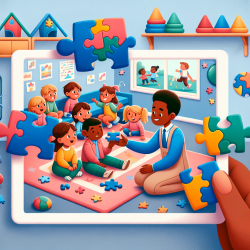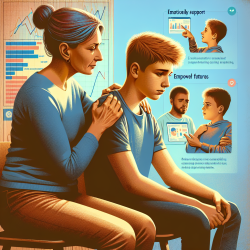Caring for a child with a rare neurodevelopmental disorder (NDD) presents unique challenges that are often misunderstood by both the public and healthcare professionals. The research article "Social Isolation and Exclusion: The Parents' Experience of Caring for Children with Rare Neurodevelopmental Disorders" by Currie and Szabo provides valuable insights into these challenges. This blog post aims to help practitioners improve their skills by implementing the research outcomes or encouraging further exploration in this field.
The Challenges Faced by Parents
The study highlights several key challenges faced by parents:
- Difference and Vulnerability: Parents often feel misunderstood in social settings when their children's behaviors deviate from the norm. This leads to feelings of vulnerability.
- Social Taboo and Stigma: There is a significant stigma associated with rare disorders, which can result in social exclusion for both children and their families.
- Systemic Dis-ease: Fragmented healthcare systems fail to provide coordinated care, leaving parents to navigate complex medical needs on their own.
- Incomprehension: Friends and family often lack understanding of the daily struggles involved in caring for a child with a rare NDD, leading to isolation.
Implications for Practitioners
The findings from this study suggest several ways practitioners can better support families:
- Create Awareness: Educate yourself and others about the specific needs of children with rare NDDs to reduce stigma and promote understanding.
- Enhance Coordination: Work towards integrating care across different health systems to provide comprehensive support for families.
- Acknowledge Parent Experiences: Validate the experiences of parents by listening actively and offering empathy, which can help reduce feelings of isolation.
The Need for Further Research
This study underscores the importance of further research into the lived experiences of parents caring for children with rare NDDs. By expanding our understanding, we can develop more effective support systems that address both medical and social needs.
If you are a practitioner working with families affected by rare NDDs, consider delving deeper into this subject. Your efforts can lead to more informed practices that significantly improve the quality of life for these families.










